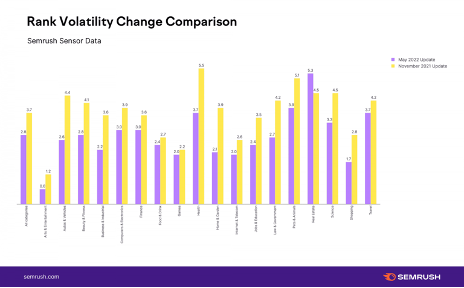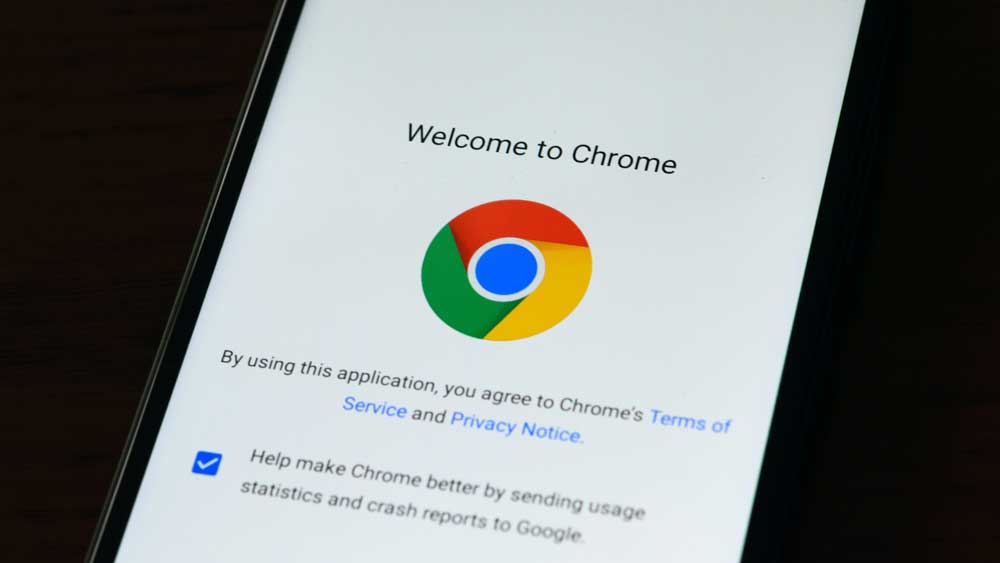Have you been keeping an eye on your website analytics and search rankings? If they’ve taken a sudden hit, it’s likely you’ve been caught out by Google’s May 2022 broad core update.
The last time Google rolled out an algorithm update was back in November 2021.
What is a broad core update?
When Google performs an algorithm update it’s usually a big deal, as it has the ability to dramatically shift your search engine rankings, which impacts the volume of website traffic and ultimately your conversions.
Essentially, Google is tweaking how the search engine interprets web pages. And it’s not something you can really prepare for. Google doesn’t lay out how it will affect your website metrics. The updates made to the algorithm are broad, meaning they address search engine rankings widely and not in a targeted way.
Broad core updates differ from other previous updates made by Google, like Panda and Penguin. These updates focused on specific factors such as the quality of backlinks and content on your web pages.
With the rollout of Google’s May 2022 broad core update now complete, let’s take a look at the SEO impact and what that might mean for your website’s performance.
What the SEO world has noticed from this update
If you’ve noticed your rankings bouncing all over the place since the update, don’t worry you’re not alone. In fact, it’s quite normal for websites to see volatile rankings because Google rolls out their algorithm updates gradually, so it always takes a few weeks to settle.
What we do know from the Semrush graph below, all industries (except real estate) had slightly smaller ranges of rank volatility than the previous update in November 2021, and experienced a smaller range of short-term volatility.

What search engine features have been impacted?
Snippets seem to have been impacted the most by this update, in particular FAQ snippets and featured snippets.
FAQ snippets getting noticed
FAQ snippets appear underneath webpage listings on SERPs and provide short, direct answers to variations of users’ queries. Barry Schwartz from Search Engine Roundtable reported that FAQ snippets on SERPs have increased from 22% to 27% of queries since the updates occurred. He’s also noted that FAQ snippets are showing up on Google Search 23% more often than before.
So if anything, start paying attention to your FAQ content on your website. Qualifying for FAQ spots on SERPs helps improve your main search rankings as a whole. Having strong FAQ content could be what moves your web page to the top and give you more credibility.

What about featured snippets?
Featured snippets have seen a distinct surge or drop since this update. So, all the information you see at the top of SERPs above the traditional listings, such as highlighted paragraphs, bullets, lists, tables or videos, have either impacted businesses positively or negatively. This is huge as a lot of organic traffic tends to come from these areas.
If you track featured snippets with tools like Google Search Console, you’ll be able to see whether you’ve lost any from the update.
Video content wins again
We know that video content has been the content king for a few years now, but this particular update has resulted in websites with video content increasing their visibility metric (the capacity to be discovered on search engines) by an average of 25%.
If you’re not already supplementing your written content with videos, then you could be missing out on a crazy amount of website traffic and leads.

Google’s advice if you’ve been hit hard
If your website has been impacted by this latest round of updates, then you need to focus more energy on your content and ensure you’re nailing all the essential SEO best practices. Knowing how to optimise content for SEO, creating great user experiences, having fast page speeds and build healthy backlinks are things you should be doing to improve your SEO.
Expertise, Authority, Trust
E.A.T which stands for Expertise, Authority and Trust is an acronym Google uses to describe best practices for optimising content to rank well on SERPs. Does your content:
• Demonstrate expertise in your field?
• Come from a position of authority?
• Compel readers to find you trustworthy?
Google doesn’t have a ranking factor for E.A.T but they do encourage focusing on this when creating content, as some of their ranking factors mirror these principles. If you answered yes to the questions above, then you’re on the right track. If not and your ranking dropped, it’s safe to assume you need to up your content game in this space.
It’s all about quality content
If this update has told us anything, it’s Google wants you to raise your content standards. One way to do this is to match your user intent from searches, known as search intent matching. This simply means your content closely matches the intention of the search engine user’s query.
Previously, writing generic content about a topic related to your website or business, meant you would rank well, even if it didn’t address a search query. From what we’ve been told, the May core broad update is reigning this in.

The bottom line
Publishing great and relevant content is a must for online visibility. Focusing on best practice SEO and investing more into developing high quality content, will boost your website traffic and put you in good stead for the next eventual Google core update (which hopefully won’t be for another 6 months or more!).




